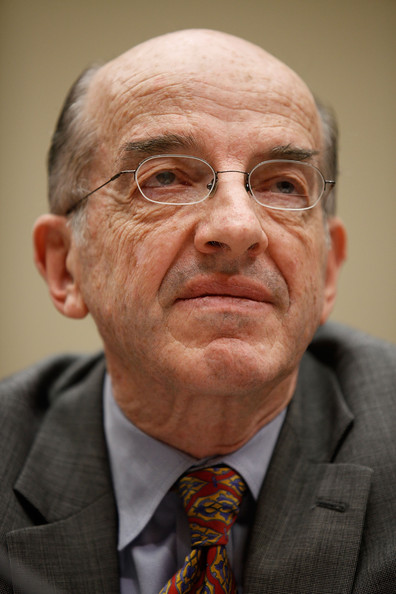Seizing The Moment

Monday, November 16, 2020
Digital Beat
Seizing The Moment

Assuming the Great Pretender vacates the premises and we can turn to building up rather than tearing down, where do we begin? And, then, how do we continue? My beat is communications, and today I want to make a few modest proposals for this sector. These proposals not only reverse four years of damage inflicted by the current administration but also help guide our nation to realize the small “d” democratic potential of our media and communications ecosystem.
A National Strategy to Connect Everyone to Broadband Now
We’ve made a mess of doing this for years. That’s because we have never (under both Republican and Democratic regimes) had a strategy imbued with anything like a sense of true national purpose. We’ve tied two hands behind our back, which is why we are an also-ran among the nations of the world in getting broadband into the homes of all our citizens. First, we fell prey to the Reagan-Bush fantasy that the free market itself would get the job done—as if the telecom industry would bring connectivity to remote places where there was no business case for it to do so. This pie-in-the-sky notion developed because (1) it so beautifully served the big telecoms as an excuse to keep government out of infrastructure building and (2) there were many in government who were so imbued with Ayn Rand ideology that they actually believed this nonsense. Second, the incumbent telecom giants, aided and abetted by all-too-compliant Federal Communications Commissions, managed to eliminate or nullify the competition stipulations of the Communications Act. Few would argue that this Act was a far-seeing piece of legislation; it had some really lousy parts. But it did envision telecom companies that would actually compete for markets instead of dividing them, and it would have allowed new and smaller competitors access to the wires and fiber that were beginning to bring the broadband internet to us.
I won’t dwell on it here because I have written extensively about it, but this approach was a blatant denial of how our country built the infrastructure that under-girded the nation’s development. From the first days of the republic, government (at all levels) and the private sector worked together to build our bridges, canals, turnpikes, telegraph, telephone, electricity, and interstate highway foundations. Sure, we argued about it and there were some ups and downs, but we built the infrastructure to make America great. The “let-the-market-do-it” crowd, by ignoring this history, has slammed the brakes on America’s twenty-first-century potential.
For those who did not understand the centrality of broadband to our society before COVID hit, they can’t help but see it now. For those who are connected, millions are doing their jobs from home, virtually attending classes from home, accessing doctors through telehealth services from home, going to church from home, participating in our civic dialogue from home, organizing for political action from home, and trying to keep their lives in balance from home. Virtual education amid the virus is a tough challenge even with good broadband; without it, there is no education. Can America really afford to let this continue?
The new administration will, I hope quickly, throw its weight into passage of Representative Jim Clyburn’s comprehensive broadband bill—The Accessible, Affordable Internet for All Act—which has already passed the House of Representatives in the current Congress. That’s for openers. But it’s time for a real strategy, motivated by a sense of national mission. This means clear leadership from the federal government, organizing agencies (not just the FCC) to be part of the effort, working with states and localities, opening the way for municipalities and cooperatives to build their own broadband networks (as many have done on their own), and clearing away industry-designed state and local laws that throw roadblocks up against such partnership activities.
Perhaps a third or more of rural and inner-city households lack decent broadband. Marginalized communities including people of color, seniors, low-income families, Native and Indigenous Americans, and individuals with disabilities continue to lag behind the rest of the country in connectivity. These folks need broadband and they need it now. No one can be a fully-participating and fully-productive citizen in the twenty-first century if they lack access to high-speed, affordable broadband. It’s a civil right, and a civil right demands civil action.
Restore Net Neutrality Now
The current FCC, under the majority controlled by Chairman Ajit Pai, eliminated the open internet’s most basic protection when it reversed the previous Commission’s net neutrality rules. And it did so with slipshod reasoning, a total lack of credible economic analysis, and untoward political haste. This one action more than any opened the way to a closed internet, affording the internet monoliths ultimate control over where consumers can go on the net, what they can see and do when they get there, how much they will pay, what information (or disinformation or misinformation) they will be guided to by those who control not just the fiber and infrastructure of the net, but who also amass and sell our personal data to the highest bidders. Believe me, this is only going to get worse unless we bring back strong open internet protections. The Telecommunications Act as written gives the FCC authority to mandate these protections. The FCC should do this as soon as the new majority is in place, hopefully right after Inauguration Day.
But restoring net neutrality should not mean simply going back to the rules we had in 2015. The new FCC must examine the broadband marketplace as it is today—one where significant additional consolidation has given providers additional power and incentive to engage in discriminatory, anti-consumer practices. In the last four years we have also seen broadband prices increase, a lack of transparency in billing, and reports of mobile carriers selling their customers’ real-time location data. A credible network neutrality framework must ensure that the FCC has adequate authority to address these harms and to act as a cop on the beat to protect consumers in an uncompetitive broadband market.
End Rampant Industry Consolidation Now
The FCC has a deplorable record of approving, even encouraging, telecom and media consolidation. This has been true under administrations of both parties. Without diving too deeply into another problem I have long discussed, the result is clear: too few companies wield too much power. No company in a democratic society should be permitted the power and influence that now belong to a few telecom and internet giants. Too much, too big, too undemocratic.
A National Discussion (Beyond Section 230) Now
There is considerable discussion right now about revamping or even eliminating a provision of the Communications Decency Act known as Section 230. Section 230 affords internet platforms such as Facebook and Google immunity from liability when materials other than their own are run on their sites. Section 230 also allows online platforms to moderate objectionable content without fear of liability. The current administration has politicized Section 230 through an unlawful Executive Order seeking to police online speech by gutting the protections the statute confers in order that the current President can spread disinformation without any oversight. Meanwhile, Members of Congress are examining ways to modify Section 230 as a way to hold social media platforms accountable for failing to moderate the spread of disinformation and hate speech.
This discussion needs to be reframed. Important free speech principles and the whole future of the internet are at stake. We must realize that reforming Section 230, or even eliminating it, is no silver bullet for the challenges that confront the internet. Spending the majority of our time on this while pushing aside citizen rights to privacy, discriminatory data practices, the potential impacts of artificial intelligence, the lack of a model for online journalism, and the diminished civic dialogue brought about by huge platforms using us as products to be bought and sold online is not the discussion we should be having now when a change in administrations gives us an opportunity to look more holistically at the challenges we are experiencing.
So herewith a modest proposal: I suggest our new President convene a temporary, time-limited panel (or commission or task force or whatever he might call it) to make longer-term recommendations for an internet that would better serve us. This would be a broadly-based panel, consisting of federal, state, and local governments, business (small and medium-size as well as large), labor, public interest organizations, scholars and technical experts, and a cross-section of citizens representing the wonderful diversity of our nation.
Importantly, I would include journalists. A central promise of the internet was to build the town square of democracy. This promise has not been realized. Every day brings online abuses that undermine the fact-gathering and knowledge and open discussion upon which democracy depends. Media both old and new have been consolidated into a few arbiters of our civic dialogue; community journalism is a shell of its former self, and independent voices have been widely silenced. There is just not enough food and water to nourish the roots of democracy.
So, let’s range widely. There are no silver bullets or magic cures or partisan solutions. There is only the history-making challenge of making the internet work for us, utilizing its vast promise and ridding it of those forces that have blocked its potential. Our goal must be an internet that truly serves the public interest.
Michael Copps served as a commissioner on the Federal Communications Commission from May 2001 to December 2011 and was the FCC's Acting Chairman from January to June 2009. His years at the Commission have been highlighted by his strong defense of "the public interest"; outreach to what he calls "non-traditional stakeholders" in the decisions of the FCC, particularly minorities, Native Americans and the various disabilities communities; and actions to stem the tide of what he regards as excessive consolidation in the nation's media and telecommunications industries. In 2012, former Commissioner Copps joined Common Cause to lead its Media and Democracy Reform Initiative. Common Cause is a nonpartisan, nonprofit advocacy organization founded in 1970 by John Gardner as a vehicle for citizens to make their voices heard in the political process and to hold their elected leaders accountable to the public interest. Learn more about Commissioner Copps in The Media Democracy Agenda: The Strategy and Legacy of FCC Commissioner Michael J. Copps
The Benton Institute for Broadband & Society is a non-profit organization dedicated to ensuring that all people in the U.S. have access to competitive, High-Performance Broadband regardless of where they live or who they are. We believe communication policy - rooted in the values of access, equity, and diversity - has the power to deliver new opportunities and strengthen communities.
© Benton Institute for Broadband & Society 2020. Redistribution of this email publication - both internally and externally - is encouraged if it includes this copyright statement.
For subscribe/unsubscribe info, please email headlinesATbentonDOTorg

Kevin Taglang
Executive Editor, Communications-related Headlines
Benton Institute
for Broadband & Society
727 Chicago Avenue
Evanston, IL 60202
847-328-3049
headlines AT benton DOT org





